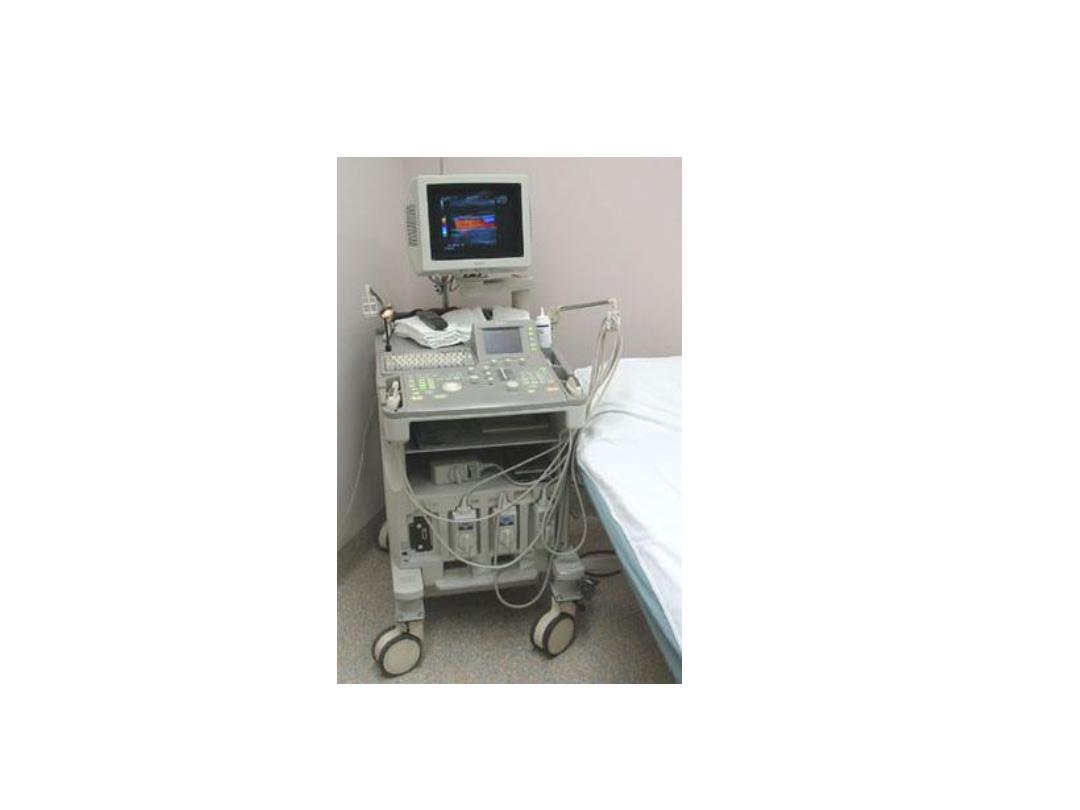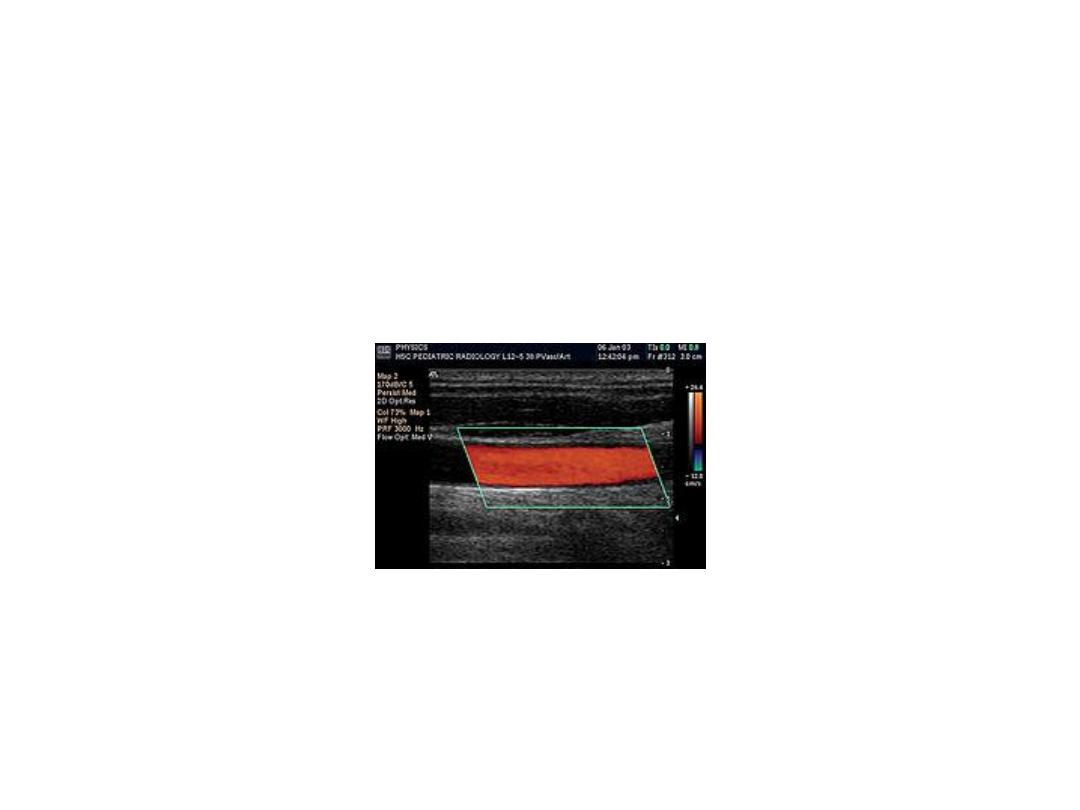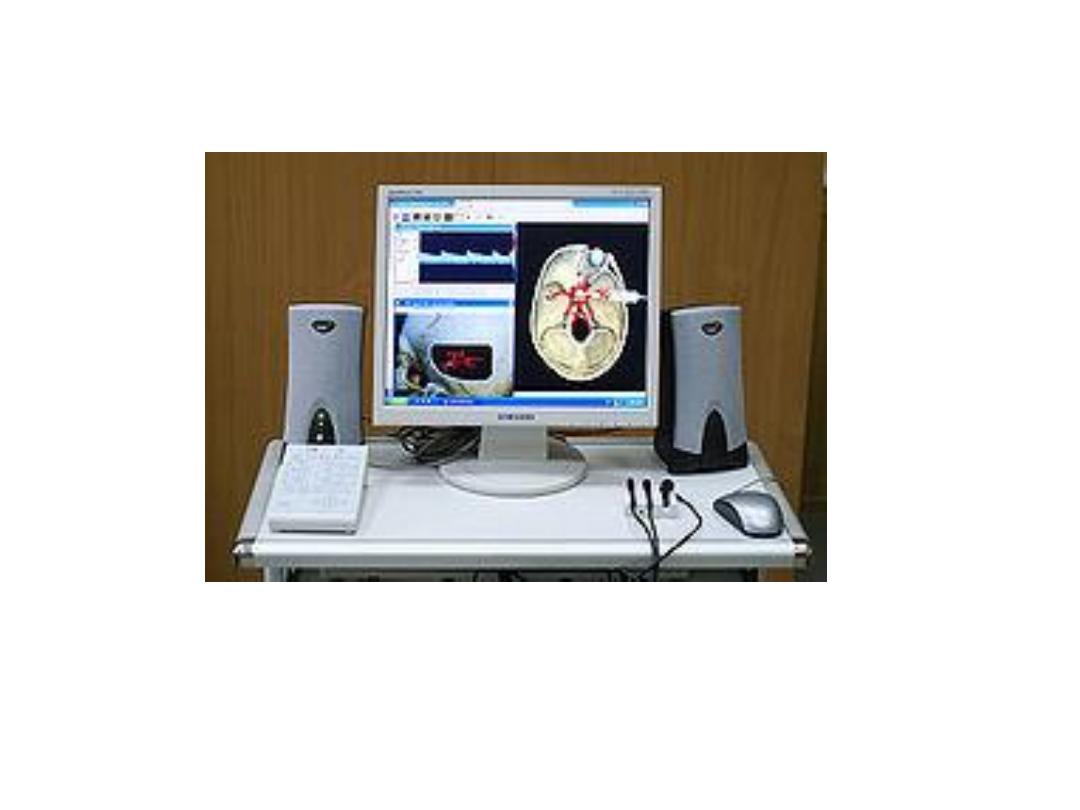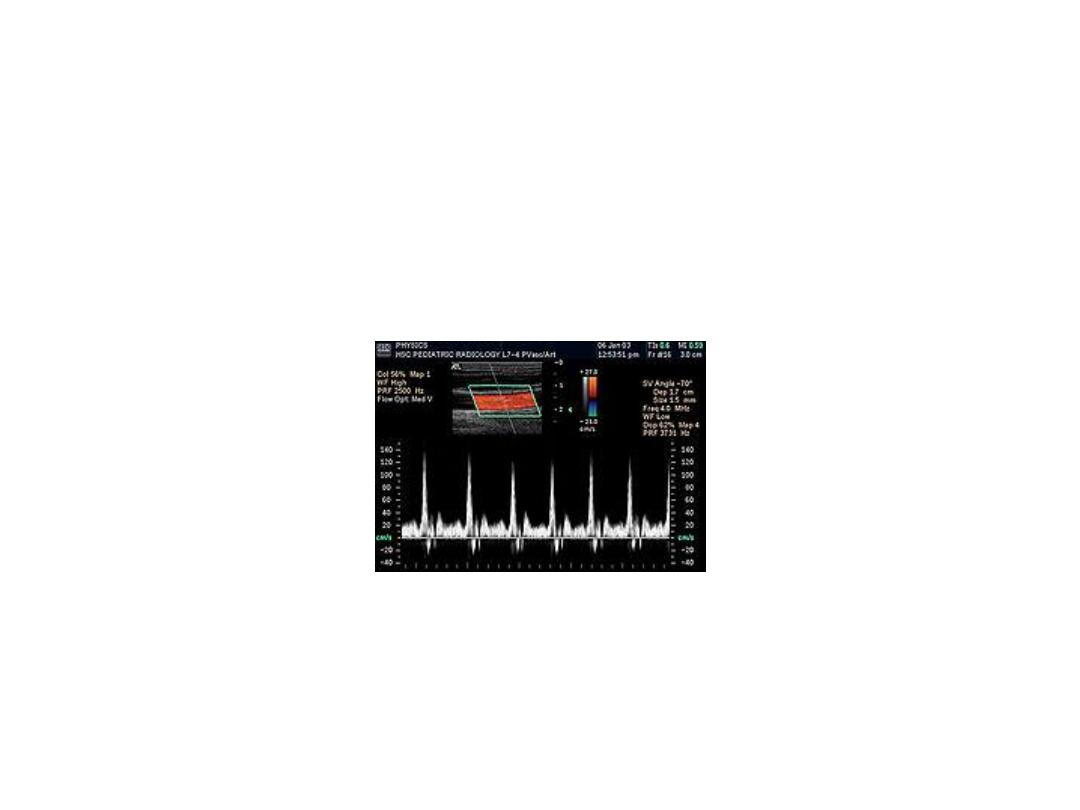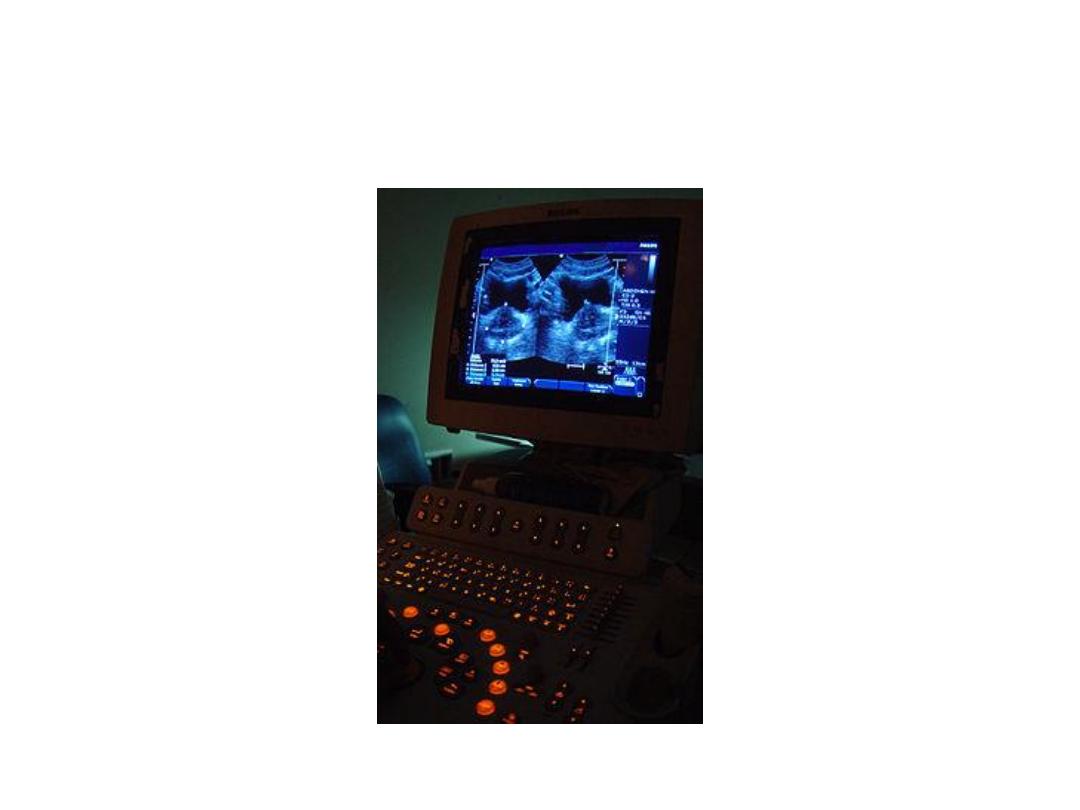
Ultrasound
BIOLOGY &SAFETY

Ultrasound ;longitudinal waves transmitted through
matter
When ultrasound transmitted through tissue it
undergo ;
1-attenuation
2-divergence
3-absorption
4-reflection
N.B; attenuation is reflection of the beam intensity
with depth of tissue pass through as
1-absorption
2-scattering
3-beam divergence

Speed of sound in (m/sec)
• Air 330-348m/sec
• Water 1480-1495 m/sec
• Lung 600
• Fat 1460
• Soft tissue 1540 (mean value)
• Liver 1550-1555
• Muscle 1580
• Skull bone 4080

Absorption coefficient & half value layers of various
tissue
\
issue or material absorption coefficient (dB/MH/sec) half value
layers(cm )
0.25
Air 12
Water 0.0022 13.68
Blood 0.18 16.72
Fat 0.63 4.78
Liver 0.94 3.2
Kidney 1.00 3.01
Bone 20.00 0.15
HVL-is that thickness of absorbing tissue that reduce the beam
intensity to half its original value
N.B soft tissue us is attenuated 1dB/cm /MH

Acousting impedance =( reflection of sound at interface)
=density of tissue x speed of sound tissue (density & tempreture)
Tissue acousti impedence(Rayl x 10 ^-5 )
0.0004
Air
1.38
Fat
Water 1.48
Blood 1.61
Kidney 1.62
Soft tissue 1.63
Liver 1.65
Muscle 1.70
Bone 7.80

The Rayl o impedance usticunit is equivalent to
gram /cm^2/sec
The higher the density the greater is the acoustic
impedence
The higher the velocity of sound in the medium
;the greater is acoustic impdence

• Human hearing is of 20-20000HZ
• US is any sound with higher than 20000 Hz
• the higher ultrasound frequency
1-beter spatial resolution
2-less penetration
3- its dispersion from the source become less( the
beam become more collimated & directional )

• SONAR ; means sound ;(so) navigation (N)&
ranging ( R)
• US frequency vs ray KV
• Velocity (speed)= frequency x wave length
• The higher density the higher velocity of
sound
• The velocity of US doesn’t depend on
frequency ; its determined by the medium
•

Operational diagnostic us mode
A-static imaging mode
1-Amode ( amplitude mode )
2-B-mode brightness mode
B-dynamic imaging modes
1-M mode (motion mode )
2- real time (=compound B scan )
C-doppler mode
To measure doppler shift frequency for depth &
flow measurment

Sound intensites employed in
medicine
• Surgical intensity more than 10 W/sequare
cm
• Therapeutic intensity 1-3
• Diagnostic 0.001-0.1

Artifact in us
• 1-acoustic enhancemnet
• 2-acoustic shadowing
• 3-reverbration
• 4-electronic noise
• 5-partial volume ( beam with artifact )
• 6-mirror image
• 7-slide lobe
• 8-velocity
• 9-refraction
• 10-aliasing
• 11- paralysis
• 12-coma tail artifact……….etc

Us biological effect
• 1- heating
• 2- cavitation
• 3- direct mechanical effect
• 4-effect on living tissue
US intensity over considerable period of time leads
to A- chemical band can be disrupted
B- macro molecules can be degraded
C-chromosomes aberration can be produce

• At sufficient high intensity + long exposure time us
is capable of producing measurable effect on
tissue
• No human effect have been observed
• No evidence of us induced latent malignant
disease exist with diagnostic range of us
• But if US intensity is sufficiently high many of the
effect produce by ionizing radiation cant be
produce

Facts
• The absolute minimum dose level reported for
observable effect in experimental specimen is 100
mwave /cm2 & only for many hours of
contineous radiation
• Its known ;no manifest injury or late effect has
ever occurred in humans exposed to diagnostic
levels of medical us but higher levels can produce
measurable effect

The rational approach
lowest possible acoustic exposure to be with us
examination by the following points
• 1- US used with valid medical reasons
• 2-user familiar with their equipment setting (
intensity ; power ….)
• 3-general rules ;user always used high gain setting
&low power setting;
• 4-reduce exposure time
A-avoid repeat scan
B- avoid holding transducer stationary
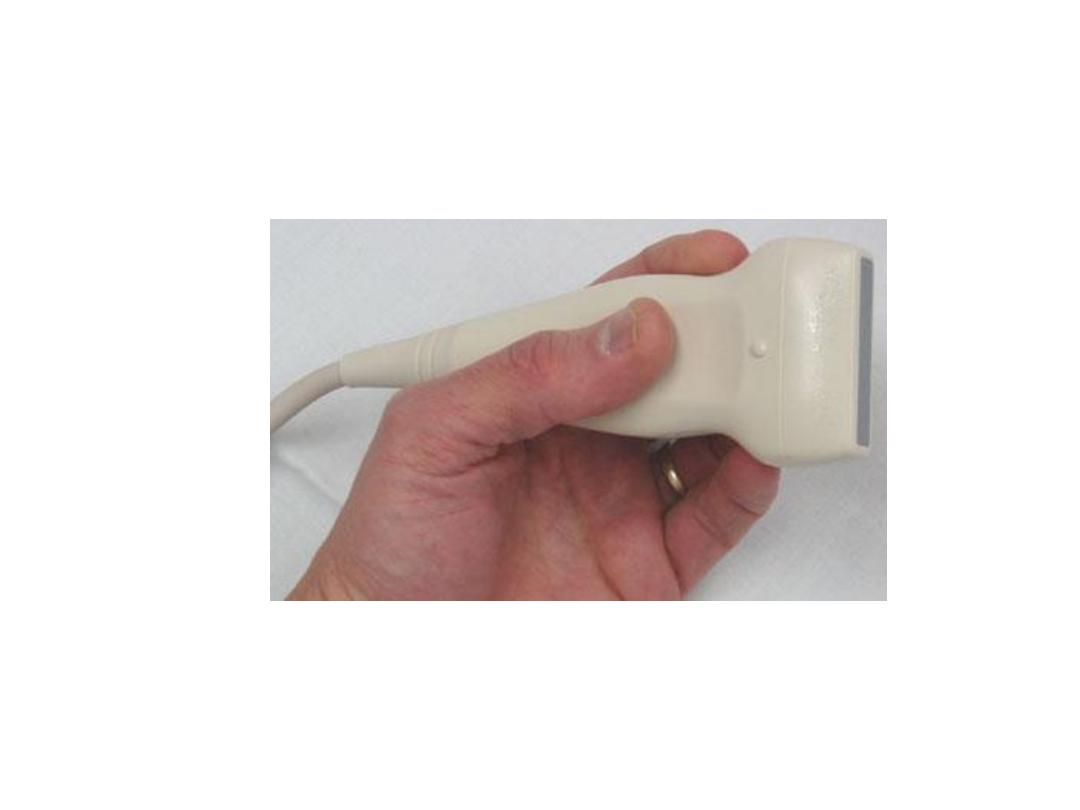
US PROBE
